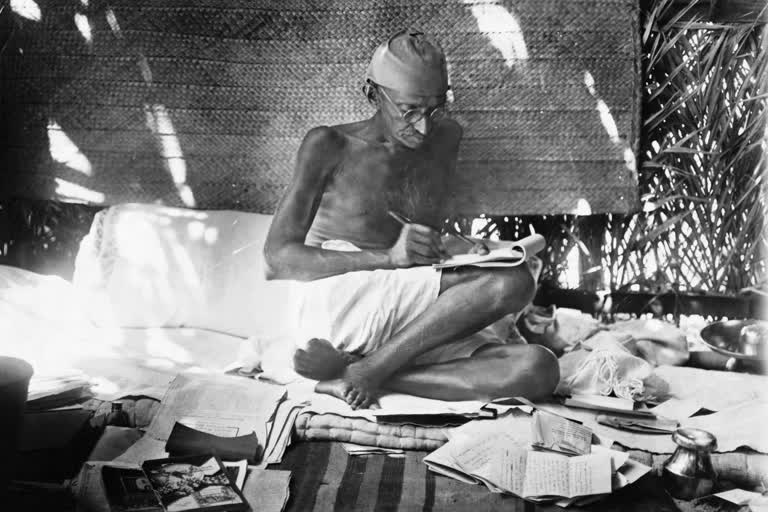Hyderabad:It is well known that Mahatma Gandhi began his meetings with an all faith prayer - reciting portions from various religious texts. Gandhi was known to be a firm believer in the idea of communal harmony.
From his childhood, as he used to nurse his father, he got an opportunity to listen to his father's friends, belonging to different religions including Islam and Zoroastrianism, about their faith.
Interestingly, he was reportedly biased against Christianity as he heard some preachers criticise Hindu Gods and believed that drinking and eating beef were an integral part of this religion.
It was much later in England when a Christian, who was a teetotaler and vegetarian, encouraged him to read the Bible, that Gandhi gave serious thought to this religion. Once he started reading the Bible, especially the New Testament, he was enthralled and particularly liked the idea that 'if somebody slaps you on the right cheek, offer your left cheek.'
Even before reading the Bible he had got this idea from the perusal of different religious texts that evil should not be countered with evil but by good.
He was exposed to different religions but he doubts whether he was a believer in his childhood. In spite of this, he was of the firm view that all religions deserve equal respect.
Hence, seeds of communal harmony were sown even at a young age for him. In fact, he became more atheist after reading Manu Smriti as it supported non-vegetarianism.
The essential learning he imbibed from these religious texts was that this world survives on principles and principles are subsumed in truth. Thus, from his childhood truth was a highly held value which became the basis for living his life and various actions that ensued.
It is ironical that Gandhi, who is wrongly accused of having supported the partition of the country, whereas, in reality, it was people like famous poet Iqbal and fundamentalist Hindus like Savarkar who made public pronouncements supporting the idea of the two-nation theory. He was questioned by the fundamentalist Hindus for not having undertaken a fast to prevent the partition of the country? The fact is the decision about partition was taken by Mountbatten, Nehru, Patel and Jinnah by marginalising Gandhi and he was only informed of the decision as a fait accompli.
Had Gandhi supported the idea of partition why would he choose to remain absent from the ceremonies of transfer of power from the British to India and Pakistan? When India was becoming independent Gandhi was fasting in Noakhali to stop communal riots.
In fact, Gandhi realised and he had publicly expressed his frustration on people not heeding to his advice of practising tolerance, non-violence and communal harmony.
The only role he could play was to bring moral pressure on people to desist from communal thought and violent action. He undertook a fast in Delhi in January 1948 upon returning from Bengal.
